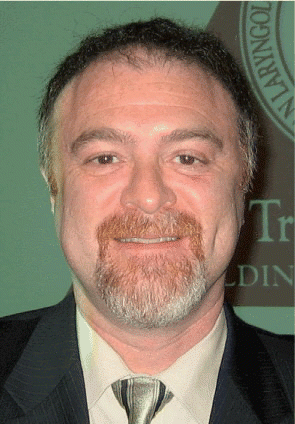Nonetheless, their novel approach was met with biting resistance. Comments were made to Drs. Strong and Vaughan that, ‘You’re committing malpractice by using a laser. This is not surgery. We use a scalpel to do surgery.’
Explore This Issue
May 2009That criticism probably stalled further development, Dr. Shapshay said. I think it set back progress a number of years, he said. Dr. Strong was afraid of pursuing this further, I believe, because of the comments and criticism that he received of doing endoscopic resection of cancer.
In the end, history has shown that, Dr. Shapshay said, We really need to keep an open mind.
The numbers presented by Dr. Shapshay demonstrate the success of the laser.
A study published as early as 1984 showed that in 103 cases of lesions treated with an excisional bx-CO2 laser, most had good results three years later. In 35 cases of squamous cell carcinoma, 31 showed no evidence of disease, an 89% success rate. All 12 cases of verrucous carcinoma showed no evidence of disease, and all three cases of spindle-cell carcinoma were without disease.
Advancements have been made in refinement of the instruments and the lasers, Dr. Shapshay noted. There are new laryngoscopes for both glottic and supraglottic exposure, including triangular design and a bivalve for wide exposure. Refinements in the use of the CO2 laser-delivery have included smaller spot size and suprapulse delivery. And there are new microlaryngeal instruments for transoral laser microsurgery, with suction, cautery, and vascular clips, as well as angled telescopes.
In another milestone, Walter Thumfart, MD, and Hans Eckel, MD, introduced their four forms of endolaryngeal laser partial laryngectomies: the vocal cord mucosal type, for tumors in situ; the cordectomy for the anterior one-third of the cord, for T1a lesions; the extended cordectomy, from the anterior commissure to the cartilage to the cricothyroid membrane, for T1b lesions; and laryngeal exenteration, for T2 lesions.
 When prognosticating voice outcome subsequent to early glottic cancer treatment, patients’ particular anatomy and how much lamina propria they may have underlying the tumor can be as important as the shape and location of the cancer.
When prognosticating voice outcome subsequent to early glottic cancer treatment, patients’ particular anatomy and how much lamina propria they may have underlying the tumor can be as important as the shape and location of the cancer.
-Stephen M. Zeitels, MD
Evidence of Effectiveness
Dr. Shapshay presented a litany of evidence vouching for the effectiveness of endoscopic treatment (see sidebar). Certainly, it’s proven to be oncologically safe for selected patients with early and advanced glottic and supraglottic cancer, he said.
But he cautioned that patients should be chosen carefully for transoral laser microsurgery. Surgeons need good pathology support, and there’s no substitute for experience. It takes quite a bit of practice to learn how to do this properly, he said. If you have a very large specimen, with an endoscope, it’s not easy to deal with.
Leave a Reply